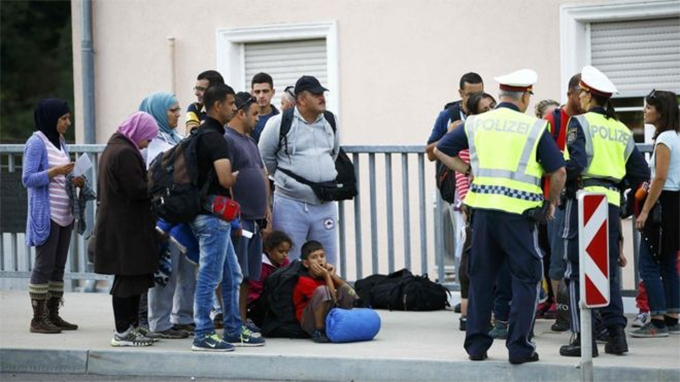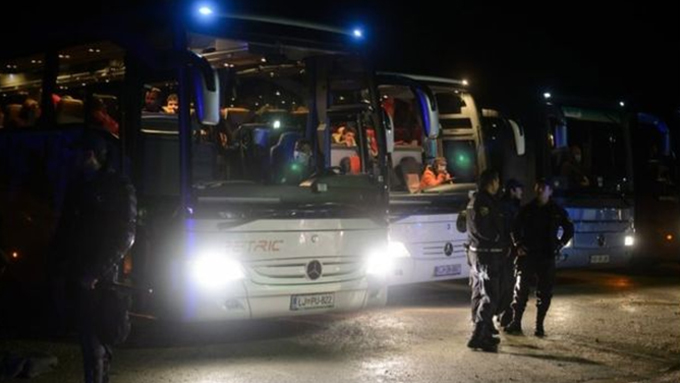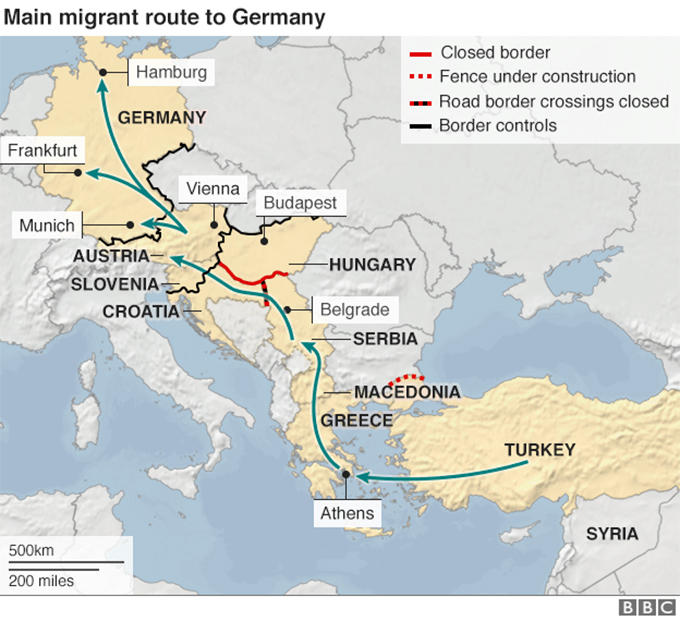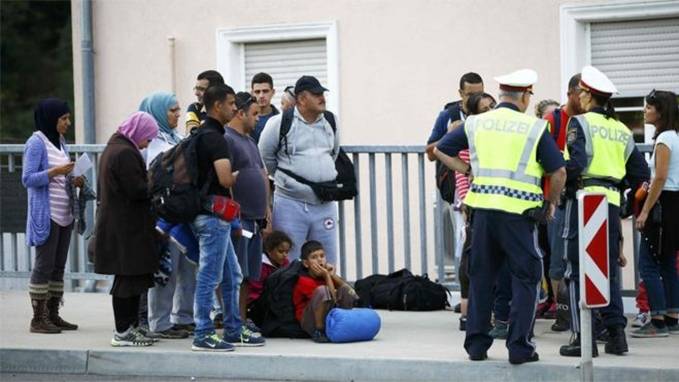Invasion of Europe: Slovenia votes on deploying army
Source: bbc.com

Slovenia is set to deploy its army to manage migrants crossing its border.
Slovenia says the numbers entering from Croatia over the last three days have overwhelmed its ability to cope.
The country's parliament is expected to approve changes later on Tuesday to enable the army to help police guard the border.
Police in Slovenia say a total of 18,469 migrants have arrived in the country since Friday, with 5,092 crossing the border on Tuesday alone.
Slovenia had previously said it would take in only 2,500 migrants a day. The migrants are trying to reach EU countries further north.
A two-thirds parliamentary majority is required to change the law on using the army. The changes would be in force for three months.
According to a report by Slovene TV, the leaders of the ruling coalition parties expected to vote in favour of the changes, but some opposition votes are also needed.
Slovenia has called on European Union member states to help with the influx of migrants who have entered the country over the past few days.
Prime Minister Miro Cerar said the current numbers were beyond anything the small country could cope with.
"It is wrong to foster the illusion that it is possible for a small nation of two million people to stop, solve and rectify a situation where even much bigger EU member states have failed," he said on TV.
Slovenia is the latest country to struggle with the flow of refugees and migrants moving north through the Balkans.

There are fears of more bottlenecks, such as this one on the Croatia-Slovenia border on Monday
Aid agencies have been warning of dire conditions as bottlenecks develop at border crossings in the Balkans.
Hundreds of thousands of migrants, many from Syria, Africa and Afghanistan, have been making their way from Turkey to the Balkans in recent months, in a bid to reach Germany, Sweden and other EU states.
Germany's policy of welcoming Syrian migrants continues to cause political divisions.
On Monday evening, there were large rival rallies in Dresden to mark the first anniversary of the anti-immigrant group Pegida.
Some 20,000 members of the group gathered to protest against Germany's refugee policy.
Nearly the same number of anti-Pegida demonstrators turned up on the eastern German city's streets in a counter protest.
The right-wing German-Turkish writer Akif Pirincci spoke at the Pegida rally about the country's response to refugees in remarks greeted with applause but consternation elsewhere.
He said that an alternative solution would be "concentration camps, which are unfortunately currently out of operation".
The protests come amid fears the group is becoming more radical in response to Germany's decision to take in hundreds of thousands of refugees this year.

EU response: EU solution seems nowhere in sight.
No-man's land: Border closures leave thousands stranded
Long winter sets in: EU pins hope on deteriorating weather
Merkel under pressure: Chancellor's migrant policy faces criticism at home
Crisis in graphics: Migration numbers explained
Croatia and Slovenia appeared to ease restrictions on the flow of migrants late on Monday, after thousands of people were stranded for hours in wet, cold and windy conditions.
Both countries imposed stricter controls at the weekend after Hungary, citing security concerns, closed its southern border and forced migrants to switch to a slower route via Slovenia
Slovenia's interior ministry said on Monday that some 5,000 migrants were allowed to enter from Croatia, and 900 of them had already travelled onwards to Austria by the evening.
Media captionGuy Delauney: "These are people just caught in politics between the countries"
More than 600,000 people, most of them Syrians, have reached Europe so far this year compared with just over 200,000 for the whole of 2014
Germany has said it expects 800,000 asylum seekers this year, but it is believed the number could be as high as 1.5 million.
Source: bbc.com






















